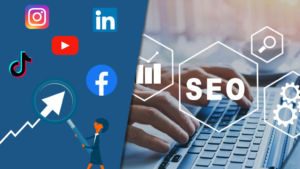In recent years, artificial intelligence (AI) has transitioned from a futuristic concept to an integral part of our daily lives and business operations. AI tools are now transforming industries, enhancing productivity, and offering innovative solutions to complex problems. In this article, we’ll explore the various types of AI tools, their applications across different sectors, and the potential challenges they present.
Understanding AI Tools
AI tools encompass a wide range of applications, algorithms, and software that leverage machine learning, natural language processing, and other AI technologies to perform tasks that typically require human intelligence. These tools can analyze data, recognize Ai Tools patterns, generate text, automate repetitive tasks, and even facilitate decision-making processes.
Categories of AI Tools
- Data Analysis Tools: Platforms like Google Analytics and Tableau utilize AI to provide insights from large datasets. They can uncover trends, make predictions, and enable data-driven decision-making.
- Natural Language Processing (NLP) Tools: Tools such as chatbots (e.g., ChatGPT) and sentiment analysis software use NLP to understand and generate human language, allowing for improved customer interactions and content creation.
- Image and Video Recognition: Applications like Google Photos and facial recognition software analyze visual data to organize and identify images and videos efficiently.
- Automation Tools: Robotic Process Automation (RPA) tools like UiPath and Automation Anywhere automate repetitive tasks, enhancing operational efficiency across industries.
- Creative AI Tools: Platforms such as DALL-E and Jasper can generate artwork, music, and written content, showcasing the creative capabilities of AI.
Applications Across Industries
1. Healthcare
AI tools are revolutionizing healthcare by improving diagnostics, personalizing treatment plans, and streamlining administrative tasks. For instance, AI algorithms can analyze medical images to detect conditions like cancer at early stages, while chatbots assist patients in scheduling appointments and answering queries.
2. Finance
In finance, AI is used for fraud detection, risk assessment, and algorithmic trading. AI tools can analyze vast amounts of transactional data in real time to identify suspicious activities and predict market trends, allowing for more informed investment decisions.
3. Marketing and Sales
Marketing professionals leverage AI tools to analyze consumer behavior, segment audiences, and optimize campaigns. Predictive analytics tools can forecast customer preferences, while chatbots enhance customer service and engagement.
4. Education
AI tools in education offer personalized learning experiences, adaptive assessments, and intelligent tutoring systems. These tools can tailor educational content to individual student needs, promoting better learning outcomes.
5. Manufacturing
AI-driven automation and predictive maintenance tools enhance efficiency and reduce downtime in manufacturing processes. By analyzing machine data, AI can predict failures before they occur, minimizing disruptions in production.
Challenges and Considerations
While AI tools offer significant benefits, they also present challenges that must be addressed:
- Data Privacy: The collection and analysis of vast amounts of personal data raise concerns about privacy and security. Companies must navigate regulations and ethical considerations to protect user information.
- Job Displacement: The automation of tasks could lead to job losses in certain sectors. It is crucial to focus on reskilling and upskilling the workforce to adapt to changing job landscapes.
- Bias in AI: AI algorithms can inherit biases present in training data, leading to unfair outcomes. Addressing bias is essential to ensure that AI tools are equitable and just.
- Dependence on Technology: Over-reliance on AI tools may lead to diminished human skills and critical thinking. Striking a balance between technology and human input is vital.
Conclusion
AI tools are reshaping the way we live and work, offering innovative solutions that enhance efficiency and drive progress across various industries. As we continue to embrace these technologies, it is essential to navigate the accompanying challenges thoughtfully. By prioritizing ethical practices, data privacy, and workforce development, we can harness the full potential of AI tools while fostering a future that benefits everyone. As we move forward, the collaboration between humans and AI will be key to unlocking new possibilities and innovations.



